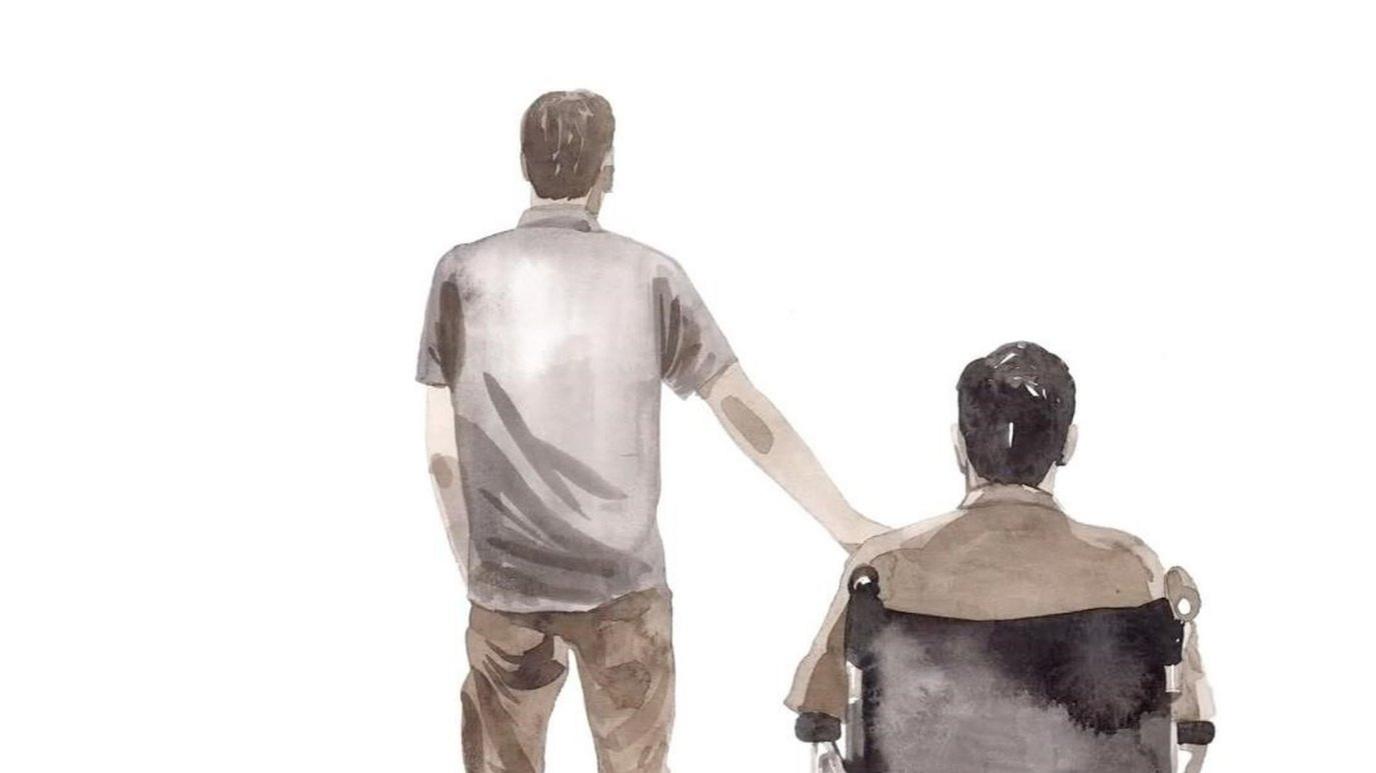The reality of life as a disabled clubber
- Published
Katouche Goll: "I felt humiliated"
A night out clubbing is something most young people take for granted. But even if they get past the bouncer, life on the dance floor can sometimes be difficult for those with disabilities.
"I've been told I'm a fire risk a number of times, or they don't have disabled toilets," says Sam Renke, a 30-year-old actress, of her experience with clubs.
"There have even been places where they do have a disabled toilet, but they use it as a storage room."
Sam, who has osteogenesis imperfecta (commonly known as brittle bone disease, but she prefers the term brittle bone condition), is determined that it will not stop her enjoying London nightlife, but bouncers don't always agree and sometimes see her wheelchair as a problem.
While she accepts she would need more time than others to leave a club in an emergency, she doesn't think she's more of a risk than a drunk person.
'Second class citizen'
Suggestions she should find more accessible venues are no more acceptable than any other form of discrimination, she says.
"If someone said 'you can't come in because you're gay', I wouldn't say 'let's just go somewhere else instead'. That wouldn't be acceptable."
She says a particular low point was missing a leaving party of a friend moving to Scotland, because she wasn't allowed in the club: "It made me feel like a bit of a second class citizen if I'm completely honest."
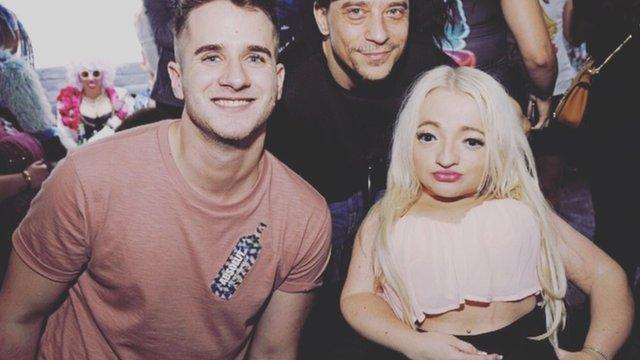
Sam Renke, pictured right on a night out, thinks that accessibility to nightclubs is slowly improving for disabled people despite many barriers
Sadly, Sam's experience is far from unique.
Although nightclubs are covered by the Equality Act 2010, which protects people from discrimination, many disabled people find some venues can be far from enjoyable.
Everything from a steep set of stairs, getting served at the bar and dealing with the attitudes of other clubbers can ruin what was supposed to be a fun night.
And getting nightclubs to make the necessary improvements is not always straightforward.
Bela Gor, the legal director of the Business Disability Forum, says: "Nightclubs have a duty to make reasonable adjustments for disabled customers.
"They don't have to change the fundamental nature of their business, for example turn the lights up, or turn the music down.
"But they do have to ensure that disabled people can get in and have a good time in the same way as non-disabled customers."
'I deserve dignity'
Katouche Goll, a 19-year-old student, was recently refused access to a London club when managers decided she was a safety risk because she is unsteady on her feet.
Katouche, who has cerebral palsy and uses sticks to walk, shared her experience on social media and received some positive support.
Still, it frustrated her that other young people didn't see why she wanted to go clubbing. Some said the club had acted "for her own good". One Twitter user claimed it wasn't discrimination at all.
"It means that they don't believe that I deserve more, that I deserve respect, that I deserve dignity," says Katouche.
It was not the first time she has had to deal with negative attitudes on a night out.
She says sometimes other punters act inappropriately towards her because she's usually the only disabled person in the club: "They try and take my crutches or draw attention to me in an inappropriate way, sort of sexual harassment comments."
'Kicking down barriers'
Rapper James Ellis, who goes by the name Truth AMW, has also been turned away from clubs because of stairs, or for being in a wheelchair.
But this year he became the first disabled rapper to play Bestival and saw that things didn't always need to be that way.
Bestival had a designated accessible campsite, is mostly on a flat surface and gives people with disabilities a free pass for their personal assistant.
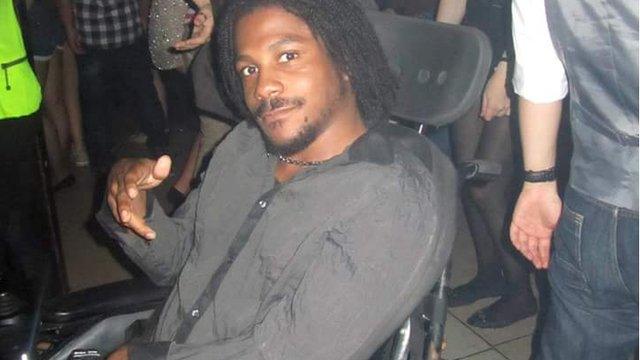
James Ellis, pictured on a night out, says Bestival was quite accessible
He is optimistic that more places will improve their disabled access: "To me, performing at Bestival was the start of me kicking down that barrier. Being able to perform is showing our nation that there shouldn't be any segregation."
Although accessible nights out are rare, they do exist.
Among the more successful venues is Cargo, a popular Shoreditch club which claims to receive over 2,000 visits each week.
When the club owners chose the venue, they upgraded the disabled toilets and the flooring to make sure it was level. Mark McEvoy, a manager said: "To be honest, it's second nature. It's just common sense.
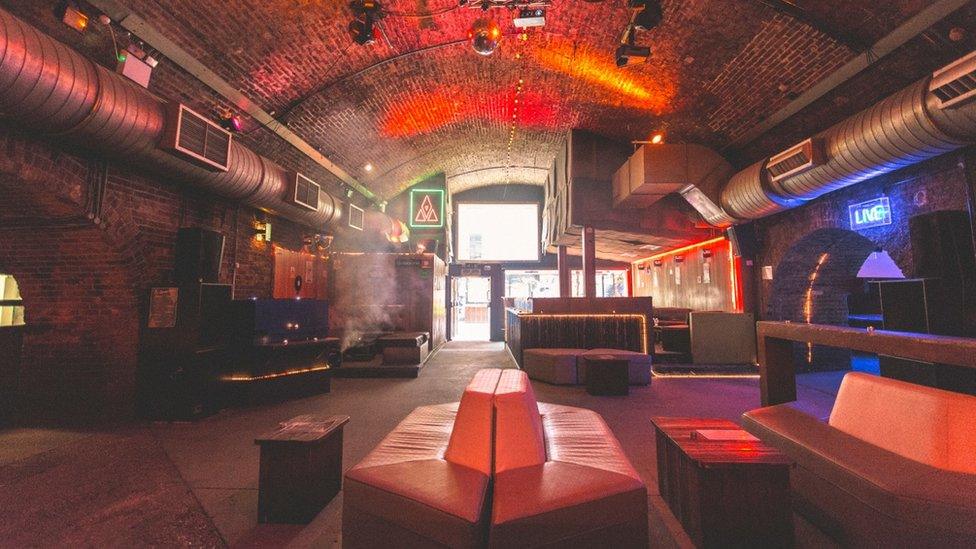
Staff at Cargo nightclub are also happy to assist disabled people with their outside kerb.
"I can't even think of an example of why somebody would be refused for being disabled."
But elsewhere the harsh reality is that accessible nightclubs remain something of a rarity - a symptom of a much wider problem.
According to disability charity Scope, external, four in five disabled people have seen little improvement in the accessibility of clubs, shops, restaurants and pubs since the Paralympics in London 2012.
Fiona Jarvis, from Blue Badge Style, external, offered a solution: "If club owners refuse to lease premises that are not accessible then more developers would be forced to install disabled facilities.
"The hospitality sector is slightly better but nightclubs are definitely the last bastion of segregation."
To Sam, it is ridiculous that disabled people still struggle to find an accessible night out.
"I want to have fun. I want to let my hair down on the weekends like everyone else and I feel like that's a basic right," she says.
- Published21 September 2016
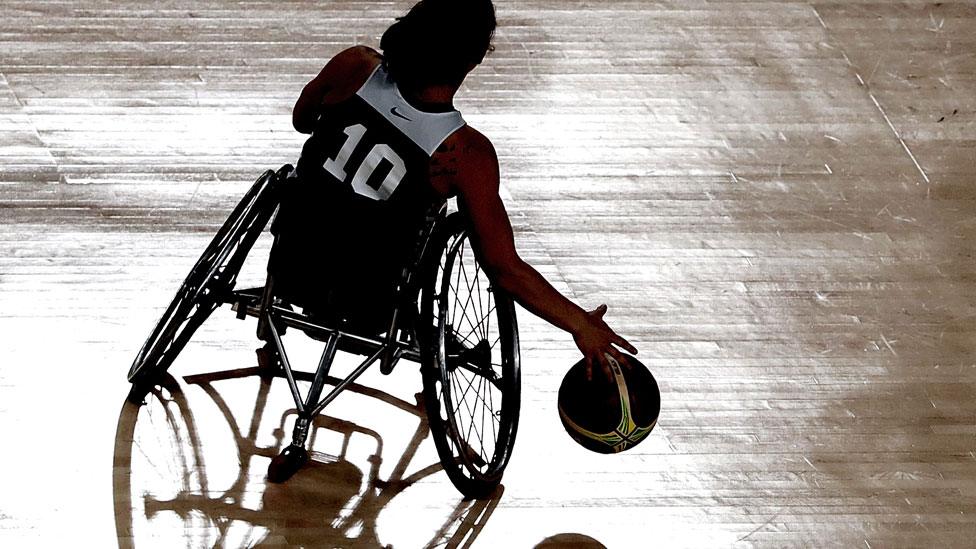
- Published25 August 2016

- Published12 September 2016
